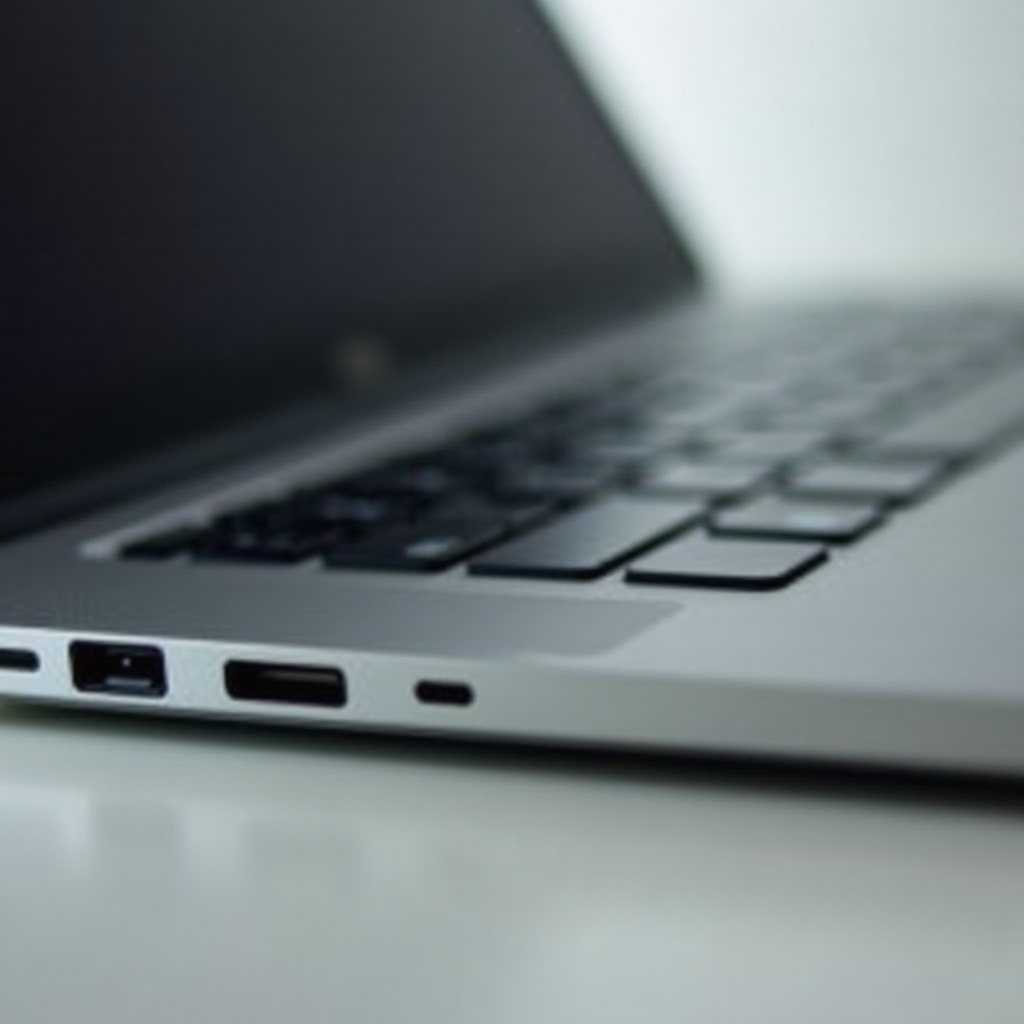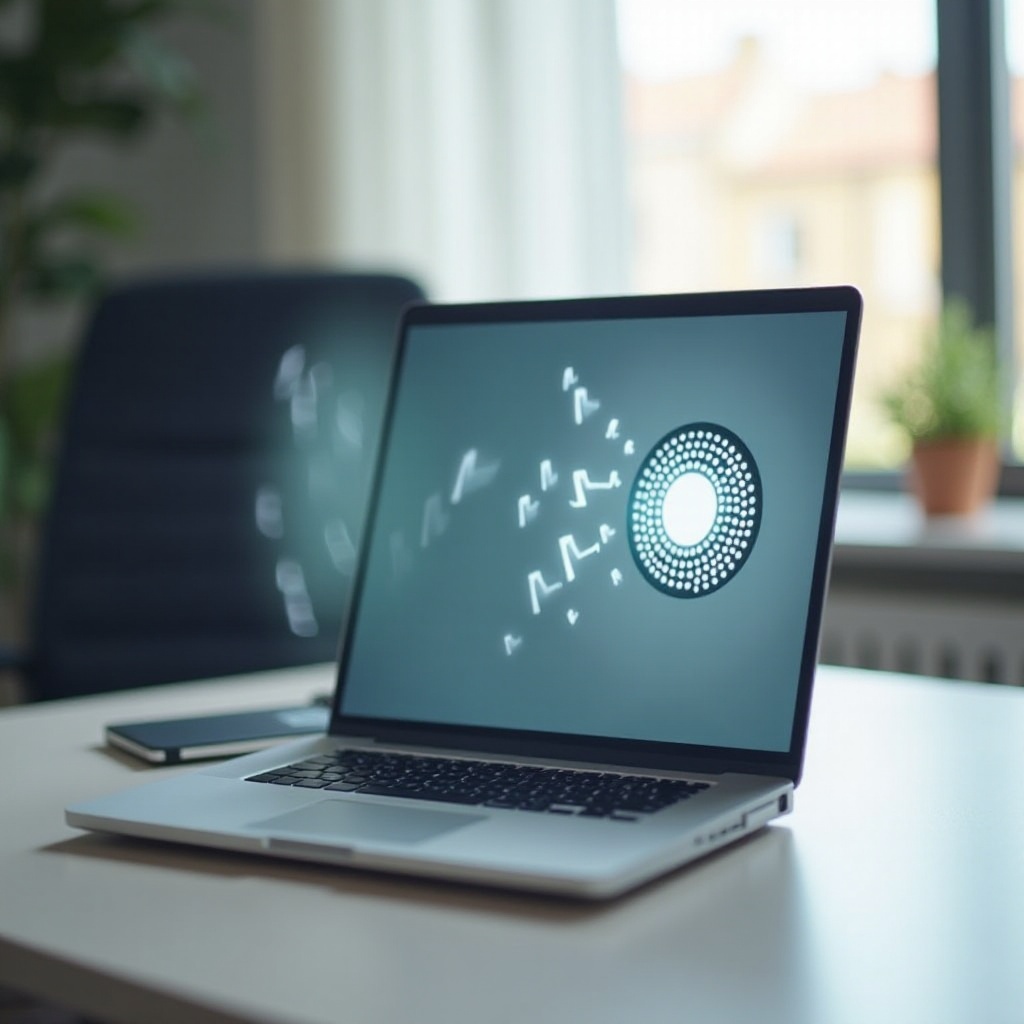Introduction
Hearing a high-pitched noise from your laptop can be both alarming and frustrating. This sound is not only annoying but often indicates underlying issues that need your attention. In this guide, we will explore the common causes of these noises, provide diagnostic tips, and offer solutions to help you silence your laptop and ensure it runs smoothly.

Common Causes of High-Pitched Noises in Laptops
Several factors can lead to high-pitched noises emanating from your laptop. Understanding the source is the first step in resolving the issue.
Fan Issues
One of the most common causes of high-pitched noises is the laptop’s cooling fans. As laptops age, dust and debris can accumulate in the fans, causing them to operate inefficiently and noisily. Additionally, a malfunctioning or damaged fan may produce abnormal sounds.
Hard Drive Problems
Traditional hard drives, especially as they begin to fail, can produce whining or high-pitched noises. These sounds often indicate wear and tear, signifying that the drive may be on its last legs.
Coil Whine
Coil whine is another frequent culprit. This electronic noise is typically caused by vibrating components in the laptop’s power regulation system. While not harmful, it can be incredibly annoying.
Diagnosing the Source of the High-Pitched Noise
Accurately diagnosing the source of the noise is crucial before attempting any fixes. Here’s a step-by-step guide to help you identify the exact cause.
Checking the Laptop’s Fans
Start by examining the laptop’s fans. Listen closely to identify if the noise increases when the laptop is under load. If the sound coincides with heavy usage or when the device heats up, the fans are likely the source.
Identifying Hard Drive Issues
If you hear clicking, grinding, or whining noises coming from the bottom of your laptop, these may indicate hard drive problems. Use the built-in disk checking tools available in your operating system to run a diagnostic and confirm the issue.
Determining Coil Whine
Coil whine can usually be identified by its distinctive sound, which often changes pitch or intensity depending on what the laptop is doing—like rendering graphics or running intensive applications.
Having identified whether the noise is coming from the fans, hard drive, or coil whine, you can now proceed with the appropriate solutions.

Solutions for Fan-Related Noises
Once you’ve determined that the fans are the source of the noise, there are several steps you can take to resolve the issue.
Cleaning the Laptop’s Fans
- Turn off and unplug your laptop.
- Open the back panel to access the fans.
- Use compressed air to blow out dust and debris. Be sure to hold the fan blades in place to prevent them from spinning and potentially getting damaged.
- Reassemble your laptop and test it to see if the noise has been reduced.
Replacing Faulty Fans
If cleaning the fans doesn’t resolve the noise, they may need to be replaced. This process involves disconnecting the old fan from the motherboard and attaching a new one. Be sure to purchase a compatible fan model for your specific laptop.
If fan-related noises are not the issue, then it may be time to look at other potential sources such as the hard drive.

Fixing Hard Drive Issues
Addressing hard drive noises can be more challenging and may require a bit more effort.
Running Diagnostics
- Use built-in tools such as Windows Check Disk or macOS Disk Utility to scan your hard drive for errors.
- Follow the prompts and repair any detected issues.
Replacing or Upgrading Hard Drives
If diagnostics indicate a failing hard drive, replace it with a new one. Consider upgrading to an SSD (Solid State Drive), which is faster, quieter, and more reliable than traditional HDDs.
If neither fan issues nor hard drive concerns are to blame, then the high-pitched noise might be due to coil whine.
Managing Coil Whine
While coil whine isn’t usually harmful, it can be bothersome. Here are a few strategies to manage it.
Reducing Power Settings
Adjusting power settings can sometimes mitigate coil whine. On Windows, go to Power Options in the Control Panel and change the plan settings to reduce the overall power consumption.
Using Electrical Noise Filters
Another solution is to use electrical noise filters. These can be added to the power supply lines to dampen the vibrations causing the coil whine.
If you’ve tried the above solutions and the high-pitched noise persists, it may be time to consult a professional.
When to Seek Professional Help
If you’ve exhausted the do-it-yourself solutions and the noise continues, professional help may be necessary.
Signs That You Need a Technician
If the noise is accompanied by other issues such as random shutdowns, software crashes, or overheating, these are signs that your laptop requires professional attention.
Preparing Your Laptop for Repairs
Before taking your laptop to a technician, back up all important data. Describe the problem in detail to the technician to assist in quicker diagnosis and repair.
Conclusion
High-pitched noises in laptops can be indicative of various issues, including fan problems, hard drive failures, and coil whine. By identifying the source and following the appropriate steps to fix it, you can resolve these disturbances and ensure your laptop runs quietly and efficiently. Regular maintenance and timely interventions are key to preventing such issues from affecting your device's performance.
Frequently Asked Questions
How can I prevent my laptop from making high-pitched noises?
Regular maintenance, such as cleaning the fans and ensuring software updates, can help prevent high-pitched noises.
Is it safe to use my laptop if it’s making a high-pitched noise?
Using a laptop with a high-pitched noise is generally safe, but it is advisable to diagnose and fix the source of the noise to prevent potential hardware damage.
How much does it cost to repair a laptop making high-pitched noises?
The cost can vary depending on the source of the noise and the required repairs. Fan replacements can cost around $50, while hard drive replacements or professional repairs can be more expensive.
